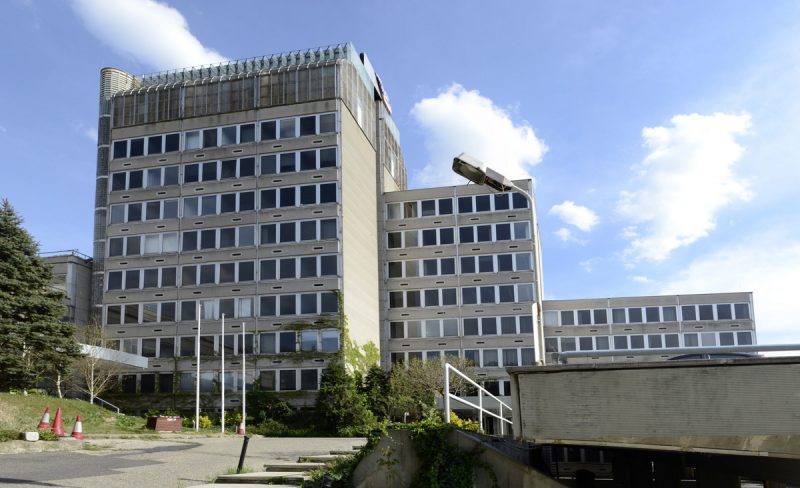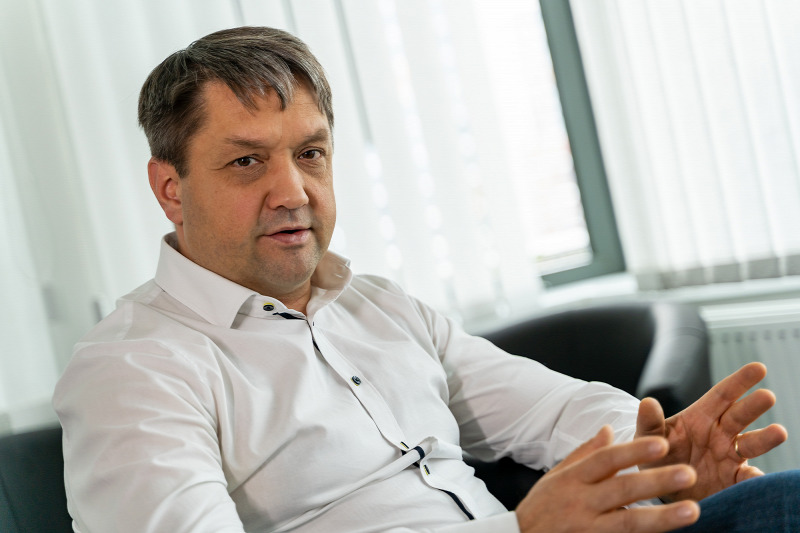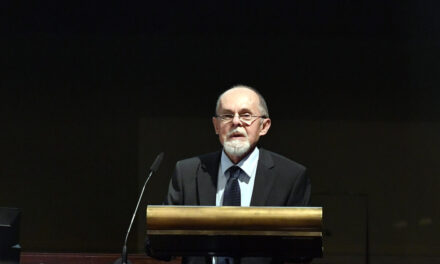This year, the over-subscription for the drama major of the University of Theater and Film Arts is also ten times higher, and on average about ten times more people applied for all student places advertised at the SZFE. Gábor Szarka, the chancellor of the university, told Origo: admissions are going smoothly, and while previously more than a third of applicants were from Budapest, this year the proportion of applicants from rural areas and across the border is around 90 percent.
The chancellor put it this way: the young people may have realized that studying at the renewed SZFE is no longer primarily the privilege of a Budapest elite. The chancellor talked about the work done so far and what further goals they have and what developments await the university. Interview with Gábor Szarka, chancellor of the University of Theater and Film Arts.
Origo: Admissions are taking place at the University of Theater and Film Arts - what are you experiencing, have there been any changes compared to last year in terms of admissions?
Gábor Szarka: Applicants to our University must pass a multi-round entrance exam. We are looking for talents, so the best students are not necessarily selected for certain courses, but the most talented ones, in whom the future head teacher sees the artistic idea that he and his students want to realize later. This requires multi-level testing. In the first round, applicants usually take a theoretical exam, and the second and third rounds are about professional work, that is, about finding the most talented young people. The most popular this year is also the drama major, where over-subscription is more than 20 times higher.
Even though the institution was attacked, the students did not turn away from SZFE. Already in the first year after the model change - last year - there was a rather minimal increase in the total number of applications compared to the years before the model change. And now there is even more over-subscription for the advertised majors. The previous anomalies also disappeared this year.
Last year, some young people essentially came to clown around instead of serious admissions, some of them signed in under a pseudonym, and then they just provoked the others in the exam. This year, we had no such experience at all, the admission process is extremely cultured. However, there is an interesting change in the composition of the applicants. While last year the proportion of young people from Budapest and rural areas was roughly thirty to seventy percent, this proportion has changed significantly this year, in such a way that among the current applicants, the proportion of young people from rural areas and across the border is over 90%. This is a significant change, the young people may already feel that it is no longer primarily a Budapest privilege to enter the SZFE. In our admissions campaign, we wanted to convey this message to the rural youth, and we are now very proud that the message fell on fertile ground and that the youth of the countryside voted in such a large proportion of their confidence in our University.

SZFE moves to the former building of Duna TV/Source: Theater online
We are proud of our students who have won important prizes at various art festivals and competitions in the past period. Several of our teachers have received prestigious recognitions, including the rector of our University, Zoltán Rátóti, who received the Kossuth Award in recognition of his artistic career. These are extremely important feedbacks for us, since at an art university, an artistic creative career and the accompanying art award and recognition can be recognized as equivalent to academic progress. However, the most important thing for us is the performance of our students in the tests. For example, the performance of SZFE students won the main prize of the 13th SZÍN-TÁR Festival in Kecskemét.
In a year and a half, we brought in several decades of lag in terms of modernizing and renewing the infrastructural and technical background of education.
We have created excellent conditions for our students in the classrooms, studios, and rehearsal spaces, which meet the expectations of the 21st century. It is also very important that, based on student needs, we have created new community spaces in all our educational buildings, and the university library has also been completely renovated, which can now boast the title of a national specialist library. All renovated rooms have been furnished with new furniture, and the level of film and theater technology, in my opinion, now provides unparalleled opportunities for education. However, I believe that even such a huge university transformation cannot show immediate results in terms of education, but a very serious construction has begun in this area as well. Therefore, the change that we have started and that we have established with the work of the last year and a half must mature. The most important player in university life is the student, and the main goal of the University's activities is to prepare the student for his chosen artistic career. In the longer term, their artistic performance and the audience's feedback will show whether we did a good job overall.
The next goal will be the development, modernization, and renewal of the University's educational program. We applied for the development of a very serious new film studio, with the help of which we would like to create an educational unit capable of implementing unique educational programs at the international level.
In addition, we will take full possession of the former Duna TV headquarters in Mészáros Street, which will create the opportunity to create new classrooms and offices, as well as dormitories, since it is a huge building. In addition to numerous infrastructural and technical developments, we renovated the Uránia main stage, which has recently been used primarily for film screenings, and can now also accommodate theater productions and exam performances if needed. Although we have condensed the work of several years into this year and a half, we have not yet achieved all of our goals, so the intensive work continues.
The university is an educational and value-creating environment, SZFE has opened up in this regard with the change of model, and an approach that puts national culture more firmly in the center has also appeared.
The old and the new now fit side by side. Cultural life is important to everyone, and it is important how the students who graduated from the University of Theater and Film represent Hungarian culture. Of course, this does not mean that we want to influence the artist how to process a theme or how to fill a role with content. At the same time, we also give opportunities to those talents who have so far been less able to develop in this field, because they were made to feel in all kinds of ways that their values are different from what is "expected in artistic circles". If we can finally break with this exclusionary approach, we have already done a great service in terms of the renewal of Hungarian cultural life.
Source and full interview: origo.hu
Featured image: Origo












